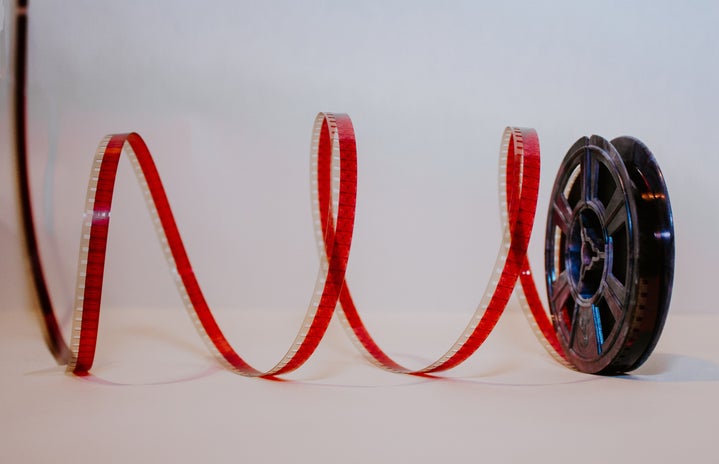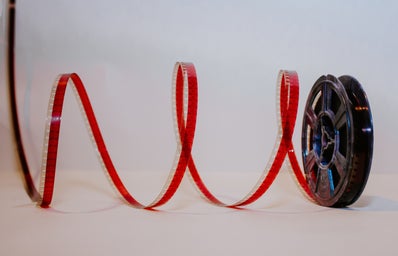Watching Love, Simon, for me, was an important experience, as it follows a theme that has been shunned, in order to suit a wider audience. However, since this movie is something I can’t comment on in its entirety, due to the difference in my orientation with the protagonist, I got some much-needed perspective from “The Queer Qrew” from SSLA in Pune. They aim to provide a safe space for the queer adolescent youth of India, as having a safe and accepting space, especially in one’s formative years is essential. Thus, their insights on growing up as a part of the LGBTQ+ community have helped me review this film with a bit more accuracy.
On the surface, it’s the journey of a high school boy, who aims to find love through a series of email conversations that take place between him and an anonymous person at his school. It’s a pretty modern take on letter writing romances of the past, but with less of the waiting and a lot more hormones.
The movie starts with Simon going about his routine life as a high school kid with a tight circle of school friends. He is leaving his home when he’s startled by a pretty boy working the lawn across the street. Simon hesitates to say something to him before he mumbles out an ill worded compliment and just bolts off. Everyone’s pulled a Simon like this at some point in their life. According to Ria from QQ, it’s still better than crushing on a girl and thinking she’s straight only to find out later that her crush thought Ria was straight as well.
The story begins when Simon finds out that someone under the alias of Bluegreen had posted to the school blog about secretly being gay. Simon, who’s in a similar predicament, hits him up using his pseudonym ‘Jaques’, and the two hit it off. The movie does not reveal the identity of Blue, and the viewer goes along with Simon, eagerly writing back to Blue, getting impatient with replies, not being able to take his eyes off the phone. As the viewer, you too try guessing which one of the kids around Simon is Blue, by the tiny hints in the emails and the things people talk about in school.
The movie is thereon interspersed with montages of him experiencing his initial gay crushes and trying to figure out who Blue is. Ria thinks being closeted can often put you in awkward situations when it comes to crushes, where they might view you as ‘just a friend.’
To avoid veering into spoiler territory I’ll try not to get into the plot twists, but being a movie about a closeted queer person, a disclosure of his orientation is to be expected.
For most, coming out to one’s own family is the hardest part, and often it doesn’t go as one would want it to. Not everyone is privileged with ease around family members or has come to expect much acceptance, and have thus run into toxic situations with no out. These situations are often influenced by our culture that has often been far too rigid for norms to be bent. QQ’s Ananya believes that you need to accept who you are first and foremost. Once you get over that hurdle, no one has the right to stop you from being who you are, and that is most important. Fortunately, some parents are as accepting as Simon’s were depicted here, and even if they may not be, Trisha thinks it’s alright, and you may find acceptance in unlikely places. These things go a long way in comforting you through hard times and do wonders for your mental wellbeing.
When asked if they had any advice for people going through similar situations or even to their younger selves, something everyone agreed on was that you should be kind to yourself, and learn to accept who you are. There will never be any rush for you to decide who you are or label it because ultimately it is a spectrum and you can hover over it.
The film has received its fair share of criticism. The issue with mainstream films like this one is that they are made for the audience to be liked, and thus Simon is portrayed just as another flower boy. In reality, a personality like his is more easily loved than one of the other characters in the film. He is an effeminate boy of colour, who is shown to be rather different from the other characters in the film and is eventually ridiculed upon coming out. This goes to explain why active discussions on homophobia are imperative today.
While you have to appreciate Hollywood for the bits of inclusivity in their movies, these attempts are still more often a miss than a hit. The characters often bear little or no importance to the story (I’m looking at you, Riverdale) and feel thrown in like pineapple on a pizza. It does not work. When asked about the representation of the community in mainstream media, the QQ do think there are not many examples that come to mind. This needs some work because they can no longer be the punchline of the movie’s sense of humour. It’s time they were treated and represented as what they are, living breathing human beings that have the purpose of serving in a story besides being the token queer character for the sake of views/earnings.
In this way, Love, Simon is unique. It has been first of its kind to be produced by a major production house with a star-studded cast while catering to the LGBTQ+ community. While it is not something revolutionary, it was still a good start for a higher cause.
Would something like this work in India? Would it make them more accepting?
Some say yes while others are sceptical, but the consensus is that the focus needs to shift beyond coming out or coming of age stories. They need to depict queer people being more than just their identity or preference. While there will be a particular section of the public that shun this and brand it as propaganda, nonetheless, this will spread awareness amongst the masses, and there will be more safe havens for the queer people and the future queer youth of our country.
As I further continued talking to The QQ, I did ask them a set of questions that I felt a lot of teens today do ask, and the following is what they had to say for it ~
When did you find out about your sexual orientation?
This varies from person to person and can go as early as 10-13 when you have infatuations and crushes on your close friends, and you’re not sure why. There’s no concrete explanation for it. Then again, you can be as old as 17 or beyond before coming to terms with your feelings and preferences and realising that these things are completely normal. Often this acceptance of your own orientation is also affected by your upbringing and the influence of peers. There is no definite answer to this, but you do notice signs, no matter how subtle, all pointing to it.
How was coming out to your friends like? Is there something we can work on to be a better ally?
This is something not a lot of friends get to hear or even know about at least initially, and the ones that do, are close enough to you that they would love you regardless of your orientation or preferences. This goes somewhat more smoothly than anything else when it is about coming out. Your friends are always curious and ask you a lot of questions, and it’s all very wholesome. Eventually, more friends get to know, and if they don’t stick around, you’re better off without them. A friend is not just the first person you come out to some time, but can also be the one to help you come to terms with and help you accept what you’re feeling. Having people like these is the equivalent of having a second home. When it comes to being an ally, there’s not a lot to it except the willingness to listen to what your friend has to say, without any judgement or preconceived notions. Sometimes that’s all it takes to put your friend at ease. Ask them to believe in themselves no matter what. It all starts with them, all you can do is help guide them along their path
Is it normal to feel confused? What did you do to make yourself feel at peace?
There’s no denying the confusion in your feelings and urges it will cause, but you have to remember that there is no denying your feelings. They are a part of you just as much as anything else. Rahel of the QQ recalls thinking her feelings were normal until she was told that others usually didn’t share the same feelings as her. Mental health can spiral in these moments of denial and confusion, so it’s essential to find an out, talk to someone you trust. Ria from the QQ suggests if you are gonna write, hide it extremely well so that you can come out when you are ready and not because someone found out about your writing. There’s always great music by queer artists and movies with queer people that you can relate to. There’s just so much on the internet these days to help you through things and help in not feeling alone.
How can India as a society/country be more accepting of the community?
The sheer amount of derogatory terms used against those belonging to the community is a clear sign that our country is nowhere near being perfect when it comes to accepting. While this is being curbed, it is due to the rigidity of cultural norms and age-old traditions. All this is being questioned and broken down in the current age of mass media and easy access to information. While this is the case with most urban areas, rural areas tend to be more orthodox with their views towards the LGBTQ community.
Eventually enough, our country and society need to realise that our religions and traditions should not prevent us from being accepting of other humans. Educating children and adults promptly is the way to go. Widespread awareness targeted at uneducated masses is a must.
Also debunking myths regarding members of the community is severely essential in a world full of misconceptions such as ours.


